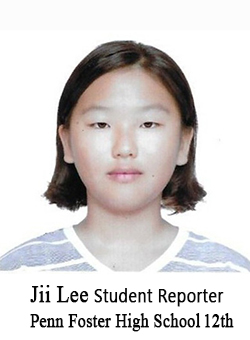 |
June, along with being indigenous history month, is pride month. It is celebrated each year to honor the 1969 Stonewall Uprising in Manhattan. The Stonewall Uprising was the peak of the Gay Liberation Movement in America. To celebrate this month, I have decided to present a famous and unique tale.
We start off in the Trojan war. Achilles, the well-known war hero who later tragically dies from an arrow at his ankle, is in his tent, refusing to part take in battle. Agamemnon had recently dishonored and angered him. Thanks to the best warrior in Greece sulking in his tent, the tide of the battle shifted with the Greeks at a major disadvantage. With Achilles was his lifelong companion Patroclus. Friends since their time in Phthia, Achilles' homeland, and raised to be warriors together by Charon, they were inseparable. Patroclus, knowing that the Greeks were losing, got dressed in Achilles' armor and led the army for him. Unfortunately, this does not end well for him. In book 16 of the Iliad, he meets his death by the hands of the Trojan general Hector.*
Achilles gets this message and is filled to the brim with rage. He laments Patroclus's death while fasting. This is shown in many artworks.** The rage from Patroclus' death fuels him as he goes back into the battlefield once again. This time his only goal is to kill Hector and avenge Patroclus' death, despite a prophecy saying that doing this would cost his life. After defeating Hector, he ties Hector to the back of his chariot by the ankles and drags his cold corpse as he rides his chariot. This, of course, becomes the cause of Achilles' death, just like the prophecy that warned him.
The story of the Iliad would not have been the same if Achilles did not love Patroclus. Whether that love was romantic or platonic has been debated for centuries. Famous philosophers like Socrates and Plato had debates about whether their relationship was romantic or not. Socrates, while he also participated in homosexual relationships, believed that their bond was nothing sexual or romantic. He believed they loved each other like brothers. Plato, on the other hand, stated that they were divinely approved lovers and went forward to state that Achilles was the Eromenos, the bottom, in his book Symposium.***
Homer never explicitly says that their relationship was romantic or sexual. Despite this, their actions in the story make the reader question if their relationship was platonic. This would forever be debated since the Greeks didn't have the words homosexual or heterosexual. They believed men could desire handsome young men and also desire women. There is a word for that called Bisexuality. Therefore we would never be able to confirm if they were strictly homosexual or not.
This classic tale depends entirely on your opinion whether their relationship was romantic or not. However, for those who believe it was romantic, it could be giving a sense of comfort that LGBT people have existed even before the Stonewall Uprising. I heavily recommend reading "The song of Achilles" written by Madeline Miller, if you have the time.
일리아드의 사랑 이야기
6월은 원주민 역사의 달이며 성소수자의 달로서 맨해튼에서 일어난 1969년 스톤월 항쟁을 기리기 위해 매년 기념된다. 스톤월 항쟁은 미국 동성애 해방 운동의 정점이었다.
이 이야기는 호머의 일리아드 이야기에 나오는 트로이 전쟁에서 출발한다. 나중에 그의 발목에 화살이 박혀 비극적으로 죽는 유명한 전쟁 영웅 아킬레스는 그의 천막에서 전투에 참여하기를 거부하는데 아가멤논이 그를 모욕하고 화나게 했기 때문이었다. 그리스파의 가장 뛰어난 장군이 전쟁참여를 거부함으로써 그리스는 전쟁에서 불리한 상황이 이르렀다.
아킬레스 곁에는 그의 절친 파트로클로스가 함께 있었는데 그 둘은 고향 프티아에서 카론에 의해 함께 용사로 성장한 이후, 뗄레야 뗄 수 없는 사이였다. 패트로클로스는 그리스인들이 지고 있다는 것을 알고, 아킬레스의 갑옷을 입고 그를 위해 군대를 이끌었지만 불행하게도 슬픈 최후를 맞게 된다. 파트로클로스는 트로이의 장군 헥토르에게 죽임을 당한다.*
아킬레스는 이 소식을 듣고 화가 머리끝까지 치밀어 올랐고 파트로클로스의 죽음을 슬퍼하며 단식하는데 이 장면은 많은 예술작품에 나타나 있다.**
아킬레스는 파트로클로스의 죽음을 복수하기 위해 다시 전장에 나가고, 헥토르를 죽이면 자신도 같이 죽을거라는 예언을 들었지만 결국 헥토르를 죽인다. 그후, 그는 헥토르를 그의 전차 발목에 묶고 시체를 끌고 달린다. 물론 이것은 그에게 경고했던 예언처럼 아킬레스의 죽음의 원인이 된다.
아킬레스가 파트로클로스를 사랑하지 않았다면 이 이야기는 다르게 끝났을 수도 있었을 것이다. 그들의 사랑이 낭만적이었는지 아니면 정신적인 것이었는지는 수세기 동안 논쟁되어 왔다.
유명한 철학자들 소크라테스와 플라톤도 이에 대해 주장을 펼쳤다. 소크라테스도 동성관계에 참여했지만 그는 아킬레스와 파트로클로스는 그저 친구였을 뿐이라고 주장했다. 반면 플라톤은 그들이 신성하게 인정받은 연인이라고 말했고 그의 책 심포지엄에서 아킬레스가 에로메노스라고 주장했다.***
일리아드를 쓴 호머는 결코 그들의 관계가 로맨틱하거나 성적인 것이라고 명시적으로 말하지 않는다. 그럼에도 불구하고, 이야기 속의 그들의 행동은 독자들에게 그들의 관계가 플라토닉한 것인지 의문을 갖게 한다.
그리스인들은 이성애나 동성애라는 단어들을 쓰지 않았기 때문에 그들의 관계는 언제나 토론의 대상이 될 수밖에 없다. 그리스인들은 남성이 잘생긴 젊은 남성과 여성 둘 다 원할 수 있다고 믿었다. 이제는 그런 사람들을 위해 양성애라는 단어가 있지만 그 당시에는 없었기 때문에 우리는 그들이 동성애자인지 아닌지를 결코 확인할 수 없다.
이 고전적인 이야기에서 그들이 연인이었는지 아니었는지에 대한 판단은 전적으로 독자의 의견에 달려 있다. 그러나 그들이 연인이었다고 믿는 사람들에게는 이전에도 LGBT 사람들이 존재했다는 사실에 위안을 받을 수 있다. 시간이 있다면 매들린 밀러가 쓴 “아킬레스의 노래”를 읽어 보는 것을 강력 추천한다.
*Homerus, Murray, A. T., & Wyatt, W. F. (2003). The Iliad. Harvard Univ. Press.
**Hamilton, Gavin. Achilles lamenting the death of Patroclus. (1760-1763), Scottish National Gallery, EdinBurgh.
Uknown. Achilles mourning the death of Patroclus. (160CE), Archaeological Museum, Ostia.
*** Harrisson, Juliette Grace. 2016. "Shipping in Plato's Symposium." In "The Classical Canon and/as Transformative Work," edited by Ika Willis, special issue, Transformative Works and Cultures, no. 21. https://doi.org/10.3983/twc.2016.0690.
이지이 강남포스트 학생기자 webmaster@ignnews.kr
<저작권자 © 강남포스트, 무단 전재 및 재배포 금지>

 강남구, 반려견 순회 놀이터 운영
강남구, 반려견 순회 놀이터 운영


